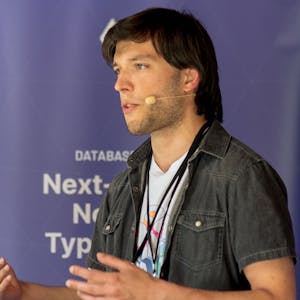160 min
Node Monorepos with Nx
Top Content
WorkshopFree
Multiple apis and multiple teams all in the same repository can cause a lot of headaches, but Nx has you covered. Learn to share code, maintain configuration files and coordinate changes in a monorepo that can scale as large as your organisation does. Nx allows you to bring structure to a repository with hundreds of contributors and eliminates the CI slowdowns that typically occur as the codebase grows.
Table of contents:- Lab 1 - Generate an empty workspace- Lab 2 - Generate a node api- Lab 3 - Executors- Lab 4 - Migrations- Lab 5 - Generate an auth library- Lab 6 - Generate a database library- Lab 7 - Add a node cli- Lab 8 - Module boundaries- Lab 9 - Plugins and Generators - Intro- Lab 10 - Plugins and Generators - Modifying files- Lab 11 - Setting up CI- Lab 12 - Distributed caching
Table of contents:- Lab 1 - Generate an empty workspace- Lab 2 - Generate a node api- Lab 3 - Executors- Lab 4 - Migrations- Lab 5 - Generate an auth library- Lab 6 - Generate a database library- Lab 7 - Add a node cli- Lab 8 - Module boundaries- Lab 9 - Plugins and Generators - Intro- Lab 10 - Plugins and Generators - Modifying files- Lab 11 - Setting up CI- Lab 12 - Distributed caching













































